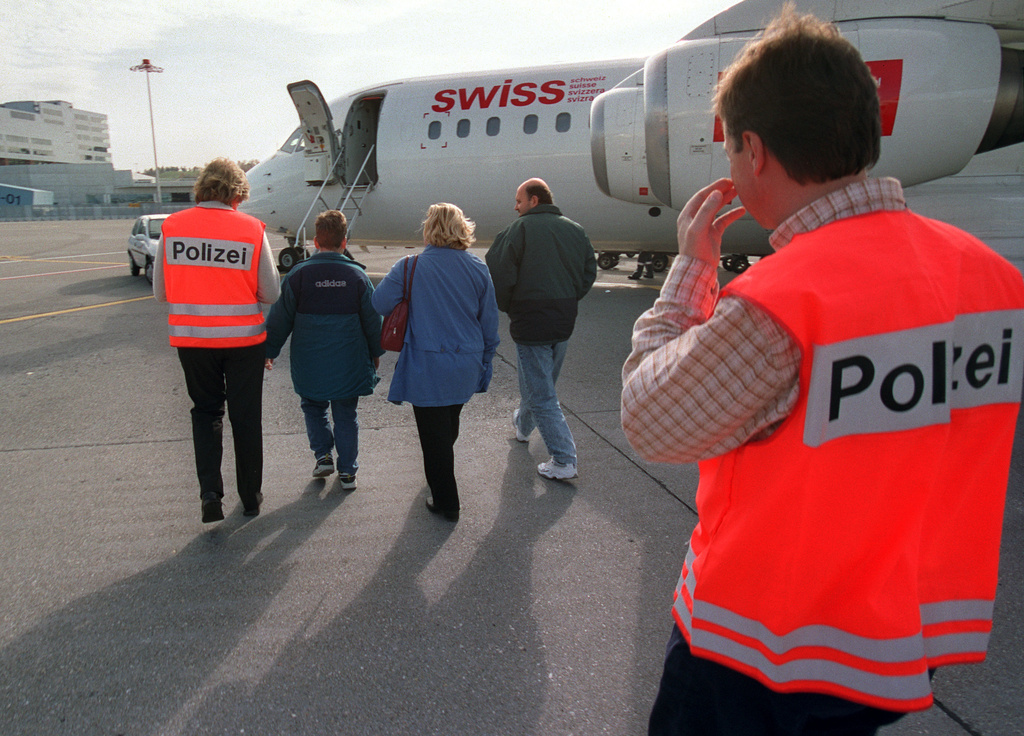Repatriation procedures questioned in report

Improvements are needed in Swiss repatriation procedures, according to a report released Tuesday by the National Commission for the Prevention of Torture. In particular, use of full restraint for combative individuals should be reexamined, it said.
The report covered the period from May 2013 to April 2014, in which there were 26 repatriations and 52 forced repatriations by air. A year earlier the commission released a similar report for the period between July 2012 and April 2013.
Although the 2014 report found there had been no further cases of forced administration of sedatives, which had been a problem in 2013, the NCPT questioned the sometimes prophylactic use of partial and full restraint for potentially combative deportees. It recommended that full restraint be used only to protect police escorts when a deportee demonstrates strong physical resistance.
In a reply to the report, the federal migration office’s technical committee on return and forced expulsion enforcement noted that “generally, the accompanying police escorts perform their duties competently”.
At the same time, the technical committee stressed that it is sometimes difficult to implement the NCPT’s recommendations. As an example, although the NCPT criticised the preventive use of restraints on deportees, the authorities argue that restraints are used to prevent attacks or self injury, and are usually only temporary. They are reduced or removed as soon as the deportee has calmed down and a security risk can be excluded.
Other NCPT recommendations, such as the standardisation of detention practices among cantons, are worthy of implementation in the view of the migration committee. The cantonal justice directors have created a working group to address this issue, and first results are expected in the summer.

In compliance with the JTI standards
More: SWI swissinfo.ch certified by the Journalism Trust Initiative











You can find an overview of ongoing debates with our journalists here . Please join us!
If you want to start a conversation about a topic raised in this article or want to report factual errors, email us at english@swissinfo.ch.